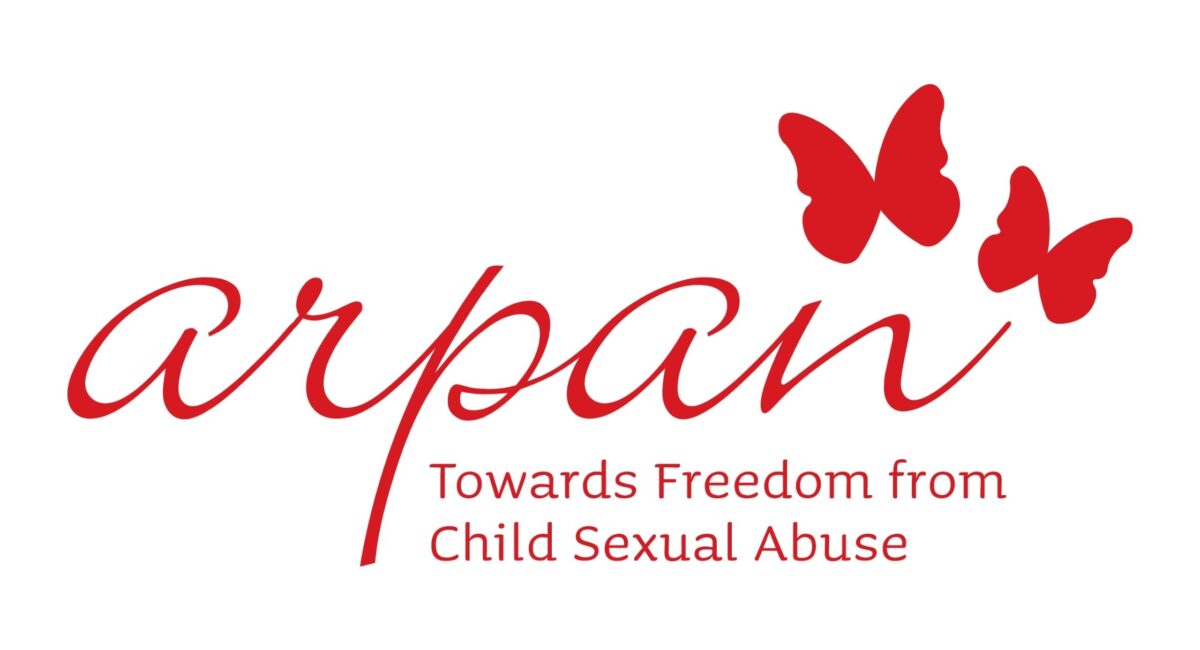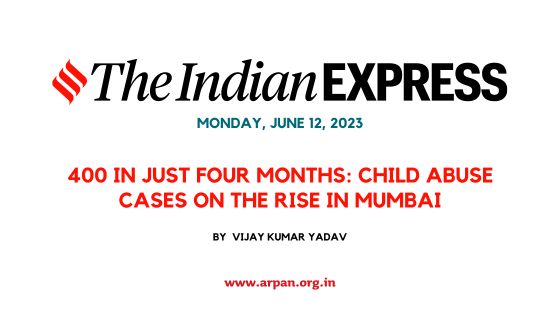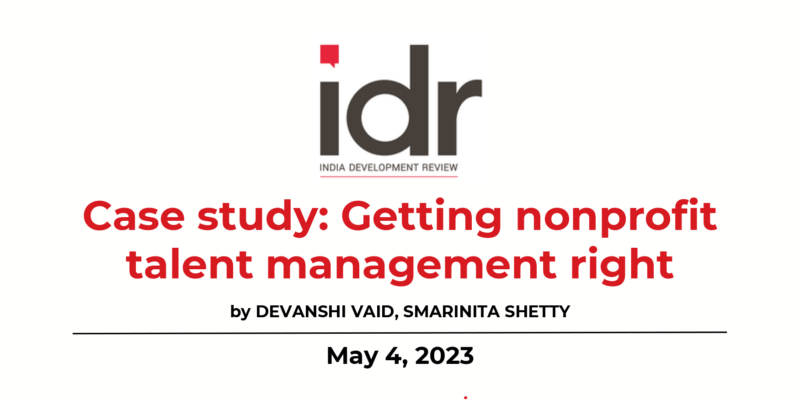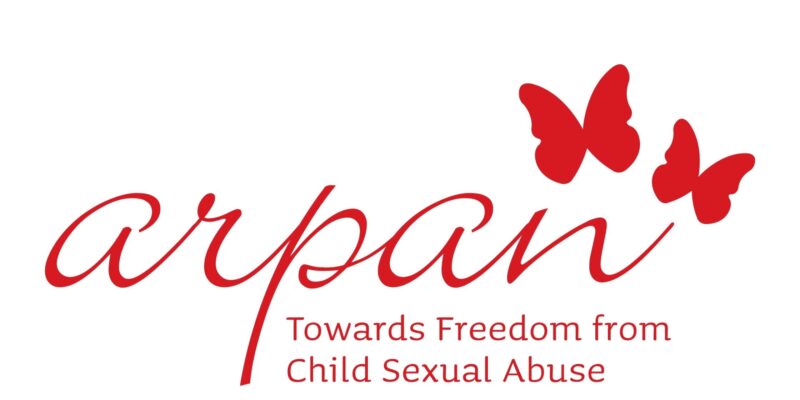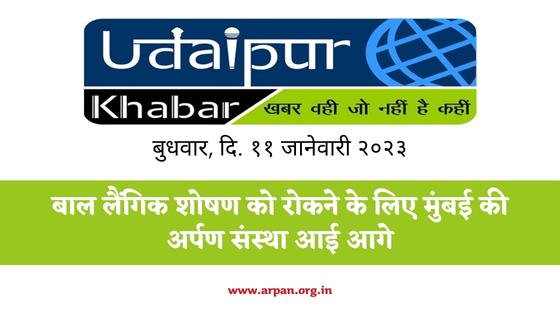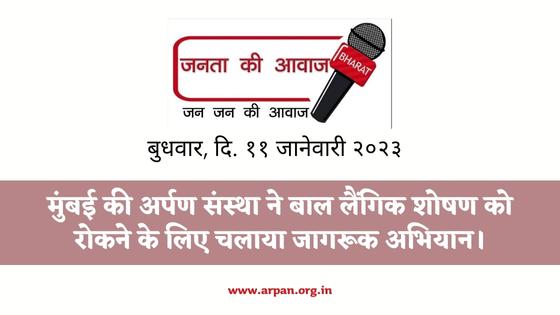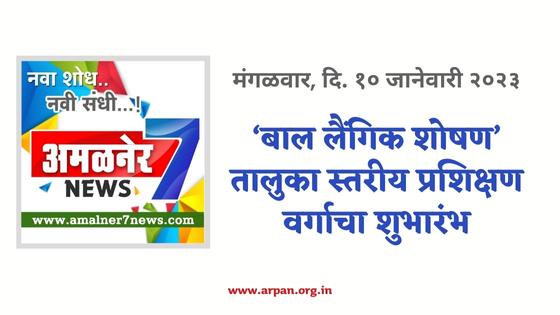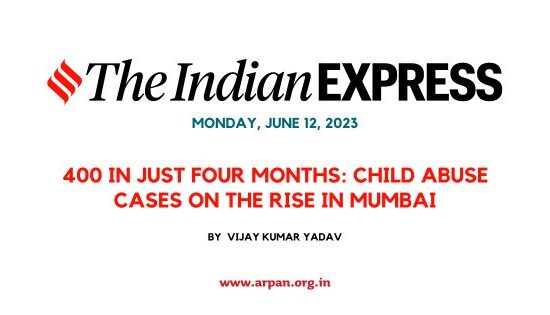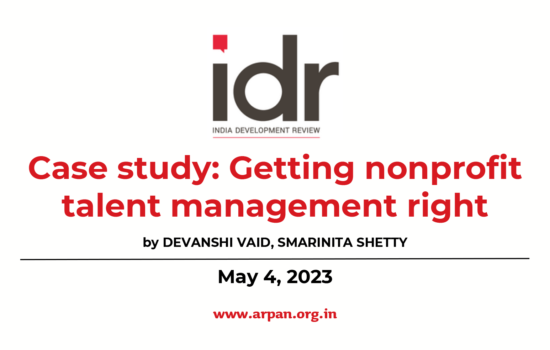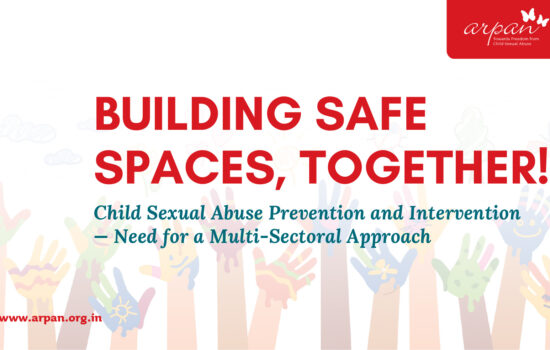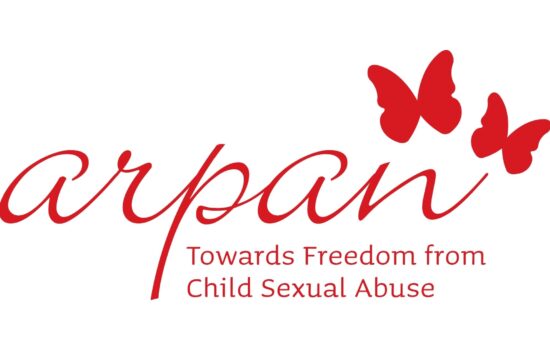This was 2017. As Secretary, School Education, Government of India, I was sitting on the last bench of a class-room, along with students of class 5, in a school in Mumbai. I was extremely impressed and least embarrassed at what was being taught primarily because of the manner in which a sensitive subject of child sexual abuse was being discussed so effortlessly with the children. With me was Pooja Taparia, the founder-CEO of Arpan, an NGO that was originally set up in 2003 to improve the lives of the underprivileged.
The journey to deal with Child Sexual Abuse (CSA) started in June 2006 after Pooja Taparia was influenced by a play ‘30 Days in September’ on this subject. It gave her a new vision and direction for Arpan. When she embarked on this journey, she saw a world that was seemingly silent and quiet to the sexual abuse of children. There was a tremendous social and cultural taboo on conversation around sexuality and awareness about CSA was non-existent. Sexual abuse of children was often hidden and under-reported and there was a limited acceptance of its prevalence and negative consequences. A broad variety of societal, cultural, individual and family-related normative frameworks restricted initiating the required conversations. Amidst this silence, the idea was to ignite the movement to prevent CSA as it was felt strongly that CSA needed to be prevented because of its high prevalence and negative impact. This was only possible if the tribe grew and each one played her part in child protection and took the pledge to create ‘A World Free of Child Sexual Abuse’.
To initiate the work on CSA, the need was to demystify it, create awareness that the phenomenon exists and it exists in our families and homes. The second step was to develop a scientifically researched prevention model that can address a multifaceted problem like CSA in the Indian context. Arpan developed the Personal Safety Education (PSE) programme which is a school-based comprehensive and holistic intervention model to respond to CSA by helping children identify and seek help in an unsafe situation so that they can participate in their own safety and strengthening their safety net. Since then, Arpan has implemented the PSE programme with 133,000 children and 104,000 parents and teachers, non-teaching staff across 218 schools, 6 institutions and 23 communities in 3 districts of Maharashtra. From its inception, Arpan believed that prevention investment must include greater provision for scientifically rigorous, large-scale outcome evaluation studies. External evaluation of the PSE programme by International Market Research Bureau (2014) revealed that out of the 8% of children reported to have faced an unsafe situation, 90% were able to seek immediate help. A Case Study (2017) also revealed that all who faced sexual abuse experience were able to stop the abuse and seek help. Based on an evaluation of the ideal gap period for implementation of PSE (2018), Knowledge retention ranged from 92% to 69%.
The third step has been to put in concentrated effort to mainstream PSE starting in early childhood and to sustain it during subsequent years. Towards this, public-private partnership has been pivotal as without the strategic deployment of government machinery, it would not have been possible to successfully achieve a safe childhood for all children. Arpan has trained 189,000 individuals and professionals through public-private partnership as well as partnership with large school chains and NGOs. Of these 139,000 professionals (govt. and non-govt. teachers, social workers and mental health professionals) were trained to replicate prevention and intervention models of Child Sexual Abuse. These professionals have reached out to over 1.13 million children and adults all over the country. This model of replication has been able to deliver impact – ~80% of children taught by the training participants remember 75% of the key concepts.
Arpan worked closely with various Government Ministries and Departments both at the central and state levels to integrate PSE within their curriculum and training. It has been part of a Life Skills think-tank initiated by the Ministry of Education (MoE) and working closely with an extremely committed set of officers like Saroj Yadav at National Council of Educational Research and Training (NCERT) and at Central Board of Secondary Education (CBSE) to ensure that the curriculum on Health and Wellness of school-going adolescents under the aegis of the school health programme of Ayushman Bharat incorporate messages of Personal Safety. This curriculum will take PSE to twenty-five crore children and fifteen lakh schools across India. Arpan has been able to integrate Personal Safety in Maharashtra SCERT school safety and security module as well which will also be transacted to all school-going children in Maharashtra.
Initiatives have been taken to integrate PSE in a number of states like Bihar, Delhi (where an energetic young officer, Ira Singhal along with Neelam Kumari and Advisor in the Education Department of the State, Shailendra Sharma provided all support and guidance) and Maharashtra (where the Education Commissioner, Vishal Solanki took the lead). Training of Master Teacher trainers and Teachers across these states has already started. On implementation, the programme will reach 30 million children through 700,000 teachers. As a part of the Nationwide Safe Neighbourhood campaign, initiated by the Ministry of Women & Child Development Department (WCD), Arpan has conducted trainings with regional officers from Childline who are in turn conducting trainings with all teachers across the country under the Nishtha programme.
Arpan also partners with the Ministry of Health & Family Welfare (where Dr. Zoya Ali Rizvi has been proactive and supportive) for trainings of Adolescent Health Counselors and Medical Officers across the country.
Work also commenced with Chandrapur District Administration, Akola District Administration, Kolhapur Zilla Parishad (under able guidance of a committed IAS officer, Aman Mittal, CEO), Kolhapur Municipal Corporation, Thane Municipal Corporation and slowly moving towards creating these as Sexual Abuse Free Districts of Maharashtra
Realizing the potential of an interactive e-Learning platform as an easy and efficient learning tool to transcend geographical boundaries and scale PSE programme, a responsive website www.arpanelearn.com was launched in 2019. 78,000 children and 2800 adults have taken the digital courses of PSE. With the support and guidance of Dr. Amarendra Behera and Dr. Abhay Kumar at the Central Institute of Education Technology (CIET), Arpan’s digital courses are also being showcased on Doordarshan’s Swayamprabha channels. This digital journey that Arpan initiated is proving to be useful during COVID time.
Arpan plans to build collaboration with 10-15 states and integrate Personal Safety in the curriculum over the next 5 years. Simultaneously, digital technologies will be leveraged to scale reach and teach personal safety to every child in the country. This will have a cascading effect to reach millions of children and adults and help the country take a step towards world free of Child Sexual Abuse.
Arpan, under inspired leadership of Pooja Taparia, with an amazing team comprising committed persons like Aditi Ray, made it happen in a domain that was considered to be kept at a safe distance and not even discussed on account of perceived embarrassment. This wonderful team brought this out in public discourse and sought to remedy the malaise. They have succeeded on account of their commitment, dedication, meticulous planning and immaculate execution.
Anil Swarup has served as the head of the Project Monitoring Group, which is currently under the Prime Minister’s Office. He has also served as Secretary, Ministry of Coal and Secretary, Ministry of School Education.
Source : The Daily Guardian

